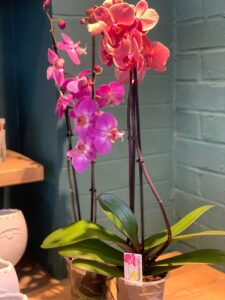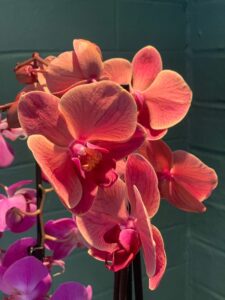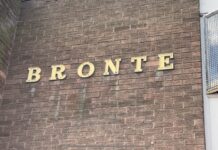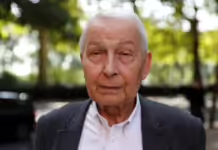Liverpool City Council has successfully won a bid submitted to The National Lottery Heritage Fund.

£245,000 is set to be awarded and invested into Liverpool’s Historic Botanical Collection which features a rare orchid.
Sarah Dalrymple, Programme Leader of Wildlife Conservation at Liverpool John Moores said: “I think the fund is a really good thing as the Botanical Collection was in jeopardy and at risk of being closed down. They have managed to keep this amazing collection going for 200 years, if closed the collection would be dispersed amongst other institutions which would have been a huge shame.”
Located in Croxteth Hall’s walled garden, the collection dates back to 1803 founded by MP William Roscoe known for gathering specimens from across the globe.
The collection is made up of thousands of different plants, including, ferns, begonia, and tropical species.
What makes the gardens even more special is that Liverpool was the first city to successfully propagate orchids.

Sarah explained: “Orchid propagation is really difficult as despite producing thousands and thousands of seeds they are tiny almost like dust. You have to be super careful because even if you sneeze on you could lose your whole collection.”
“Another thing about the seeds being tiny is that they don’t grow very well on their own. They need biotic fungi and if you don’t have the fungi when you are trying to propagate the plant it is really difficult to get them to survive and develop.”
Thanks to the funds the council are working on plans to develop the collection beginning with the restoration of The Peach House with hopes of the area becoming a leading visitor attraction.
Sarah said: “The Orchidaceae are disproportionally threatened compared to a lot of other plant families. It is still a problem where some orchids found in rainforests such as India and South America are poached and sold as a single specimen for thousands of pounds on the black market.”
Last year, the council was forced to reinforce that the collection “was not at risk” after revealing it was to change the way the plants were cared for. However, the plans were later shelved leaving a small number of gardeners to maintain the botanical treasures.
Liverpool City Council Cabinet member, Harry Doyle said: “It’s not good enough that it’s a hidden gem. We want this vital asset to bloom in every sense and for it to become yet another reason why we attract visitors to the city.”
Future plans include:
- The restoration of greenhouses and brick buildings to cultivate and grow the collection.
- Developing a new education programme by working with primary schools across the city to encourage children to connect with nature and learn the links between botany, health, and wellbeing.
- Introducing horticulture and agricultural training courses in partnership with Myerscough College and the Learning Foundry.
- Supporting mental health and wellbeing through developing partnerships with local and national organisations.
- Dedicating a website for people to view the collections from across the world.
The aim is for Liverpool’s Botanical Collection to become a centre of horticultural excellence, reviving the collection and establishing key collaborations with Kew Gardens, RHS Garden Bridgewater, as well as the Eden Project North.
The National Lottery Heritage Fund, North England Director Helen Featherstone said: “It is wonderful news that we are able to support Liverpool City Council with this project to help preserve this nationally important botanical collection.”
The council has also stated they are to work with Liverpool’s National Museums botanist team alongside universities and Liverpool’s Botanical Trust to help redevelop the rare orchids and preserve the other flowers within the collections.
Featured image: (c) Peach House – Photo credits Liverpool City Council












